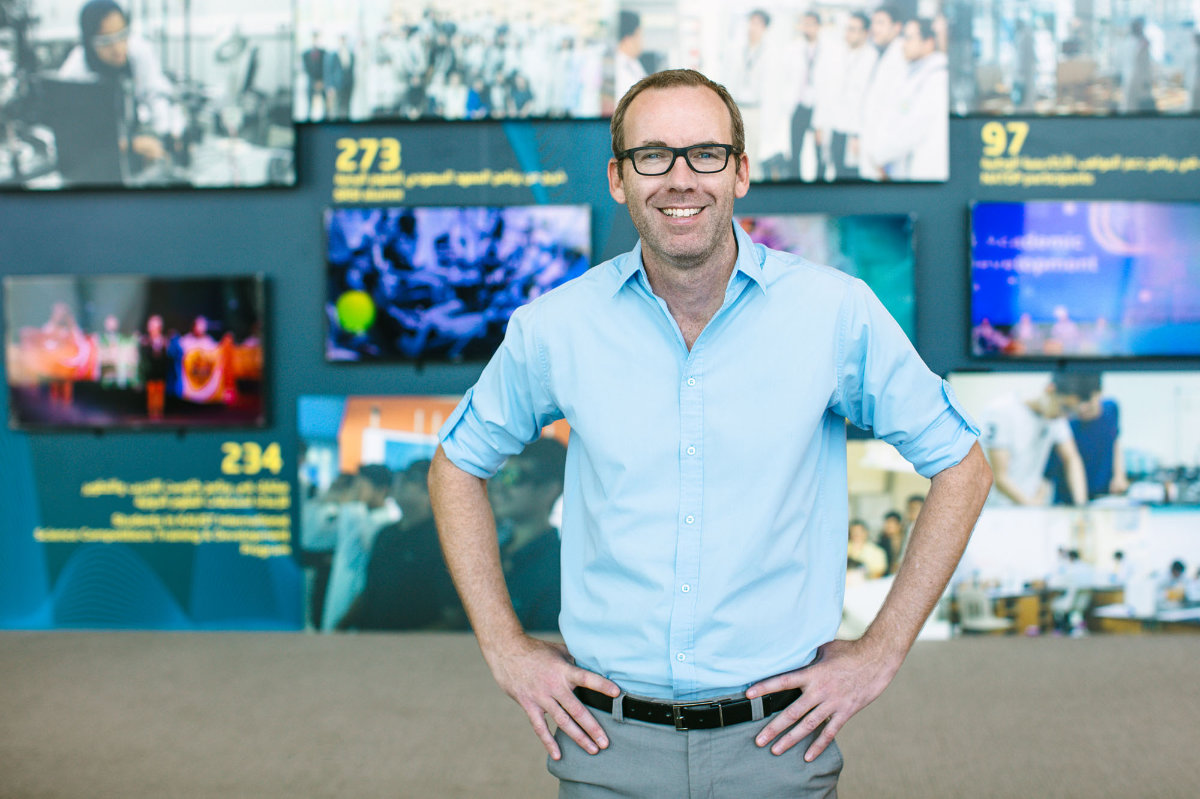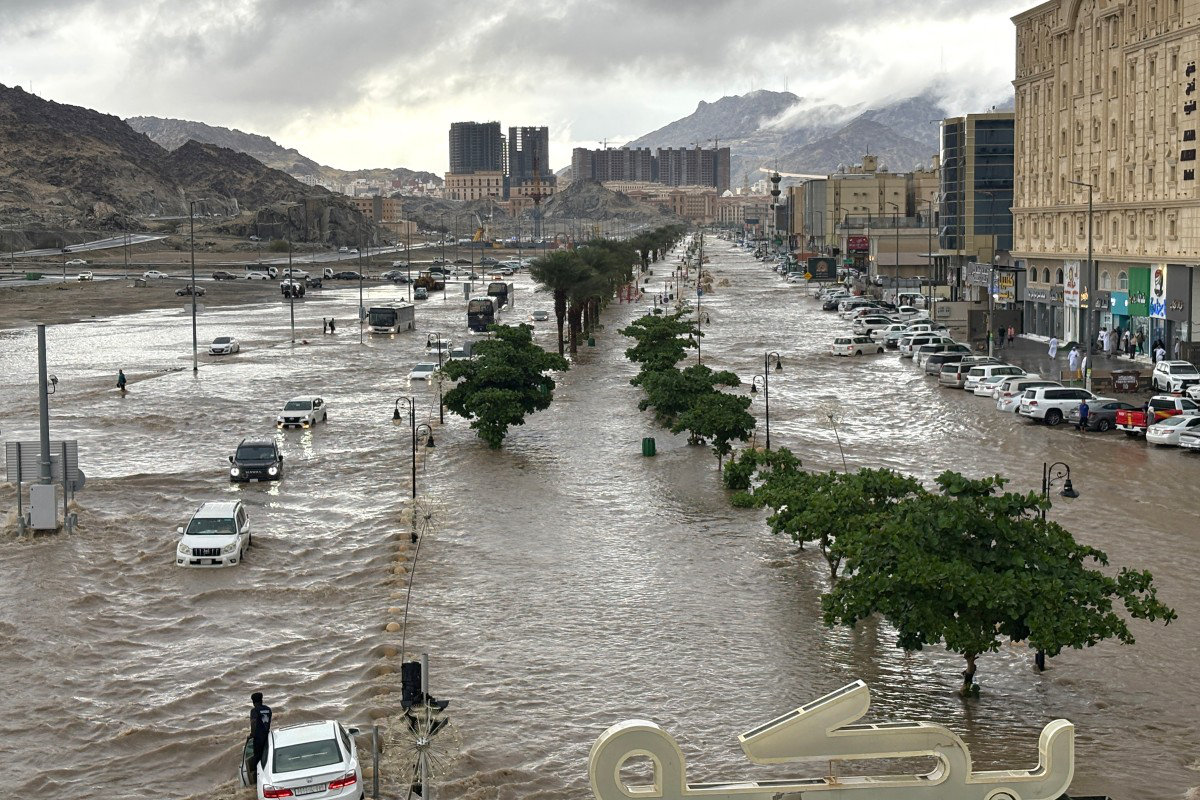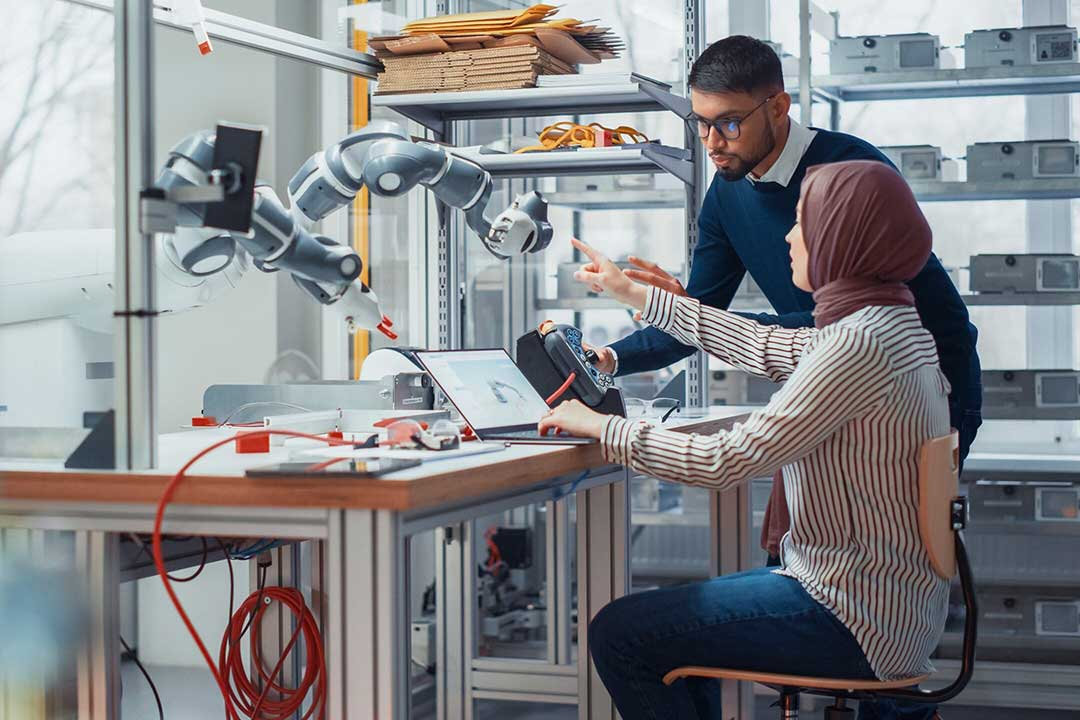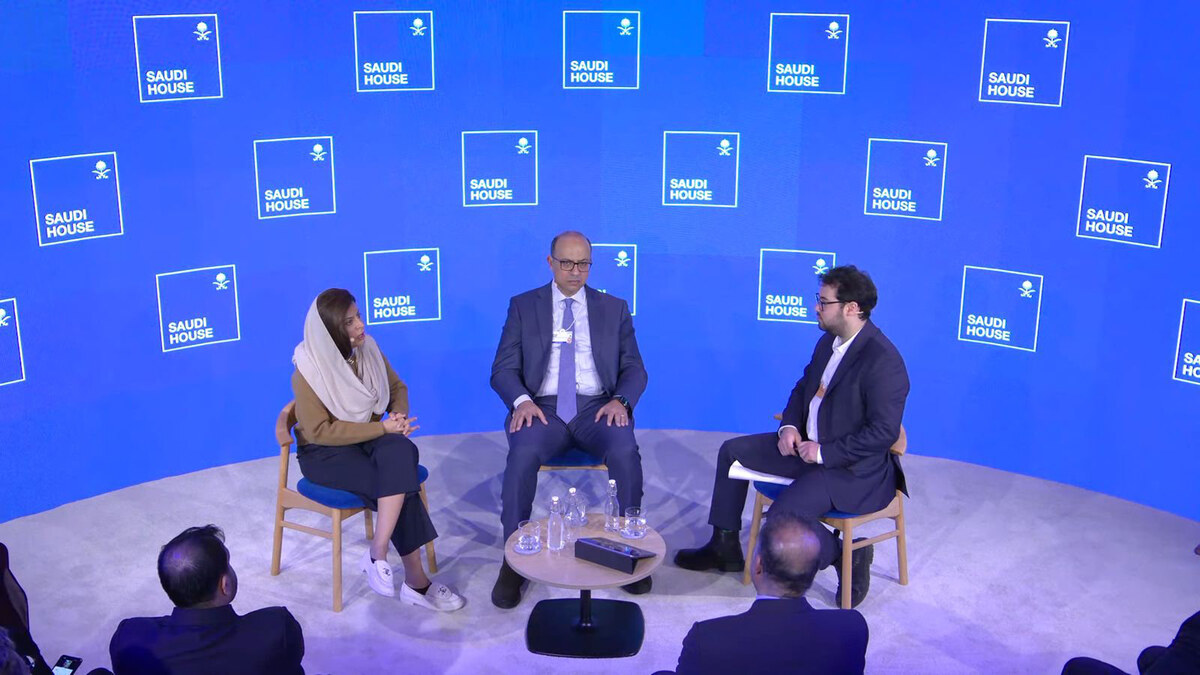JEDDAH: As the granddaughter of the renowned explorer Abdullah Philby, Dr. Sara Faris Abdullah Philby’s decision to pursue her medical education in Saudi Arabia echoes the pioneering spirit that defined her grandfather’s historic exploration of the Arabian Peninsula.
In honoring her family’s heritage, Sara follows in the footsteps of Sheikh Abdullah Philby, whose multifaceted contributions continue to inspire generations.
“My grandfather led a truly remarkable life,” Sara told Arab News. “From his legendary expeditions to his conversion to Islam, his influence extends far beyond our family.”

British explorer and documentarian Harry St. John Philby captioned the picture ‘Prayer under an acacia.’ (Supplied)
She said he has had a profound impact on her life: “Simply contemplating his image fills me with warmth and optimism. My grandfather, Abdullah, possessed a rare combination of traits — uniqueness, dedication, and punctuality — that set him apart. As an explorer and writer, he navigated uncharted territories with grace and determination, leaving an indelible mark on history.”
Who was Abdullah Philby?
Harry St. John Bridger Philby, an explorer and Arabist, received his education at Westminster School and Trinity College, Cambridge. After joining the Indian Civil Service, where he mastered several languages including Urdu, Punjabi, Baluchi, Persian, and Arabic, Philby was recruited to Basra in Mesopotamia (modern Iraq) in 1915 by Percy Cox. His service in Baghdad and Basra eventually led to a mission to meet Ibn Saud in Riyadh, a journey across Arabia for which he was awarded the Royal Geographical Society Founders Medal.
HIGHLIGHTS
• Harry St. John Bridger Philby, or Sheikh Abdullah, left behind a legacy as one of the greatest Arabian explorers.
• Over three decades, he embarked on extraordinary journeys, notably crossing the Empty Quarter in 1932, a feat that tested the limits of endurance.
• His granddaughter Dr. Sara Philby pursued her education in Alfaisal University in Riyadh. • After completing a bachelor’s degree in medicine and another in surgery, she was drawn to the intricate world of embryology.
From their first encounter, Philby was captivated by the magnetic personality of Ibn Saud, and the two formed a friendship that lasted 36 years. Despite his involvement in business and writing, Philby’s true passion lay in exploration. Over three decades, he embarked on extraordinary journeys, notably crossing the Empty Quarter in 1932, a feat that tested the limits of endurance.
Traveling by camel and later by Land Rover, Philby meticulously documented his expeditions, recording place names, temperatures, compass bearings, and more. His scholarly contributions earned him high honors from academic societies worldwide.

Dr. Sara Faris Abdullah Philby, Alfaisal University graduate
“He lived to witness a golden chapter in his life, marked by numerous creations of detailed maps, priceless books including unmatched details of his journeys, and contributions to several fields such as history, politics, and wildlife. Some of the specimens he has gathered are held in the British Museum in London,” Sara told Arab News.
As a trusted advisor to Ibn Saud, Philby’s insights and candid opinions were valued by the monarch. His conversion to Islam in 1930 further strengthened their bond, and Philby was bestowed the name Sheikh Abdullah.
In 1960, at the age of 75, Philby died during a visit to Beirut, leaving behind a legacy as one of the greatest Arabian explorers. He was buried in the Muslim graveyard at El-Bouchara, with his son Kim’s inscription on his grave marking his profound impact on exploration and scholarship.
For me, honoring my grandfather’s legacy is not merely a goal but a life purpose.
Dr. Sara Faris abdullah Philby, Alfaisal University graduate
“(He) left behind a spectacular life story and a loving family, led by my beloved uncle Khaled Philby and my beloved father Faris Philby, who would adore him for the rest of time,” Sara said.
His involvement in Arabia during World War I, his close relationship with Ibn Saud, and his pivotal role in the Arab Revolt and the creation of Saudi Arabia highlight his enduring influence on the region's history and culture.
Sara explained that her grandfather’s legacy continues to influence her approach in life and her career in medicine: “His interests in exploration and travel might differ from my academic interests in medicine and clinical embryology. However, that doesn’t diminish his huge impact on my educational decisions.
“With his legacy as a beacon, I am motivated to continuously push myself to new heights, embracing challenges and opportunities for growth along the way,” she added. “His love for history, the desert, maps, and wildlife will forever capture my heart, despite my academic pathway heading somewhere different.”
Sara pursued her education in Alfaisal University in Riyadh. After completing a bachelor’s degree in medicine and another in surgery, she was drawn to the intricate world of embryology.
“My interest in this field stemmed from a personal fascination with reading books on embryology and reproductive sciences,” she noted. “Moreover, I was deeply inspired by the noble goals of this discipline, particularly in addressing infertility and assisting couples in starting families according to God’s will.”
Sara’s religious and cultural background plays a pivotal role in shaping her career aspirations. “As a Muslim, my faith serves as a guiding light,” she affirms. “Islam’s teachings emphasize compassion and kindness, influencing my academic pursuits. The profound references to embryology in the Holy Qur’an have deepened my interest in this field.
“The Holy Qur’an beautifully elucidates the stages of human embryonic development in multiple verses,” she noted. “This further solidified my conviction to pursue a career in clinical embryology and reproductive biology.”
Following her passion, this year Sara graduated from Alfaisal University with a master’s degree in biomedical sciences, specializing in clinical embryology and reproductive biology, achieving first honors.
Speaking about the enriching experience at the university, she said: “Alfaisal University has been an integral part of my life for many educationally fruitful years … I am hopeful for its continued success and prosperity in the future.”
Her journey through academia had its own challenges: “The rigorous demands of the field required unwavering commitment and patience. However, these experiences have shaped me into the person I am today, instilling in me a sense of resilience and determination.
“Embrace the journey, stay true to yourself, and remain dedicated to your goals,” she advises aspiring professionals. “Believe in your abilities and seize the opportunities that come your way.”
Balancing personal aspirations with her family’s legacy is a central theme for Sara. “I place great importance on aligning my personal aspirations with the expectations associated with my family’s legacy,” she explains. “By staying true to myself and honoring my family’s heritage, I find harmony in pursuing my goals.”
As she navigates the complexities of academia and embarks on her own path of exploration, Sara remains steadfast in her commitment to honoring the rich heritage passed down to her by her grandfather.
“For me, honoring my grandfather’s legacy is not merely a goal but a life purpose,” Sara said.








































